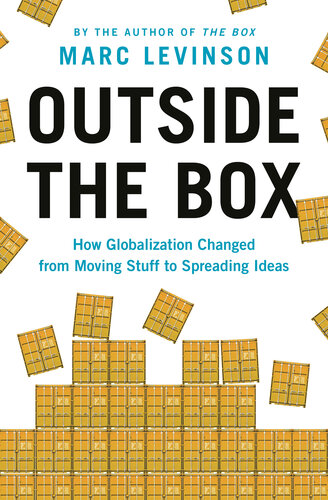
Outside the Box
How Globalization Changed from Moving Stuff to Spreading Ideas
کتاب های مرتبط
- اطلاعات
- نقد و بررسی
- دیدگاه کاربران
نقد و بررسی

July 1, 2020
One-time Economist editor Levinson outlines a new phase in the history of globalization.The author's history of the standardized shipping container, The Box, spoke to an instrument of global trade that enabled a key chapter in economic history: the ability to transport raw materials to faraway manufacturing centers and ship finished goods to commercial centers around the globe. That "Third Globalization," as Levinson calls it, does much to render national borders immaterial, at least in some respects: "When a Massachusetts-based manufacturer of industrial abrasives with plants in twenty-seven countries could be owned by a Paris-based corporation that counted Dutch pension funds, British investment trusts, and Middle Eastern governments among its major shareholders, who was to say whether the resulting entity was 'French,' 'American,' or just 'international'?" Borders may have been erased, but discontent is high in countries from which manufacturing jobs fled--foremost among them the U.S. Globalization writ large has been a good thing, Levinson argues, for people around the world, lifting huge populations out of poverty. But it has also fueled inequality, and far-flung supply chains are risky propositions. Moreover, resentments among industrial workers in the wealthy nations of the West have since led to a resurgence of nationalism, accompanied by the recent rise of authoritarian leaders around the world. The new, fourth phase of globalization is in some ways a response to tightened borders, tariffs, and economic retrenchment. Now it hinges on intellectual capital, and economic activity can zip around the globe in seconds without crossing physical borders. Many commercial goods can be downloaded (movies) or 3-D-printed while "technology is making it easier to manufacture on a smaller scale" for a bespoke audience. Levinson deals lucidly with thorny matters of fiscal and trade policy, and though his book presupposes an interest in such things, it requires no background in economics to follow it.A rational, welcome exploration of an international trade that is now at a crossroads, becoming less global than regional.
COPYRIGHT(2020) Kirkus Reviews, ALL RIGHTS RESERVED.

























دیدگاه کاربران